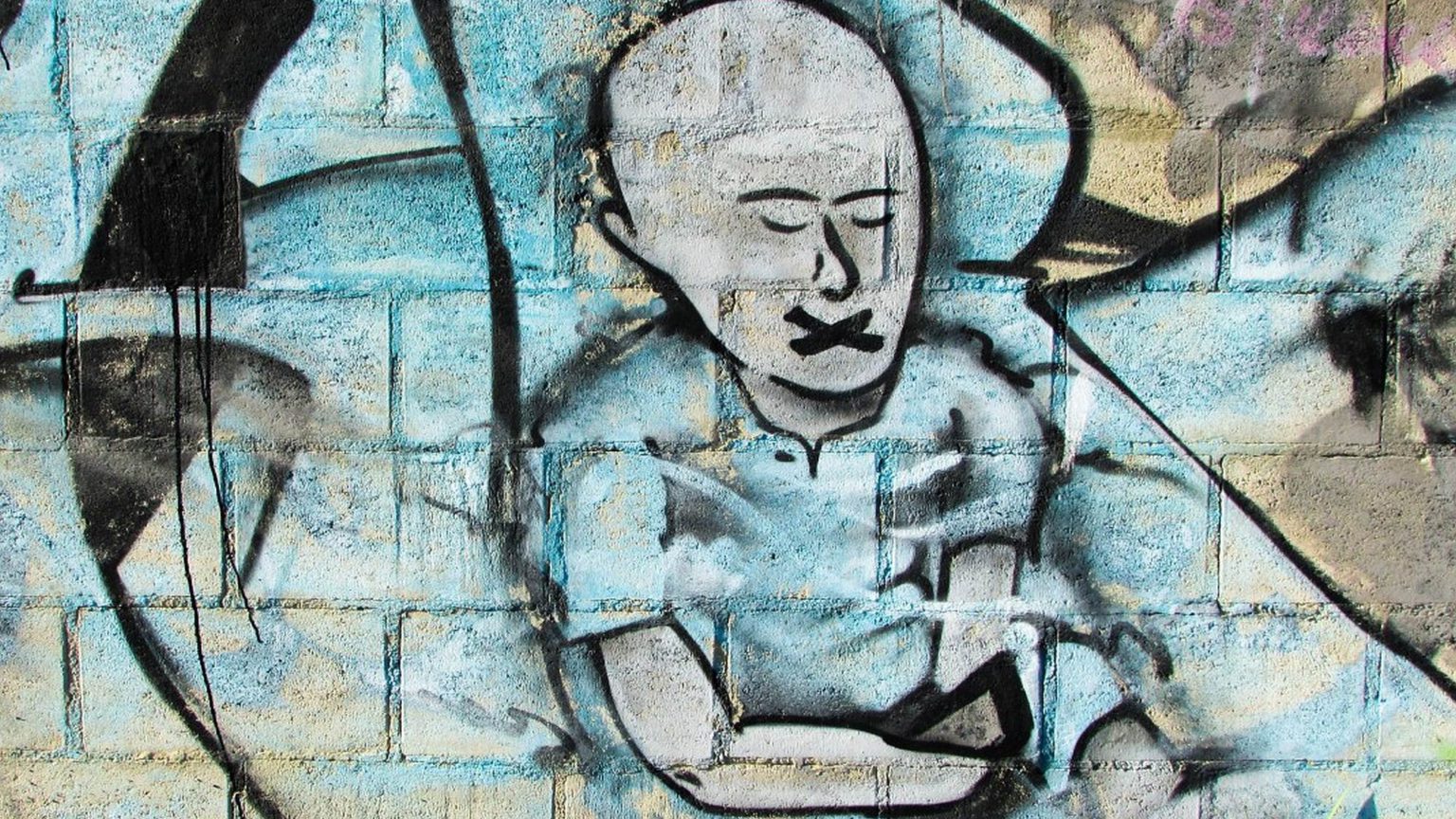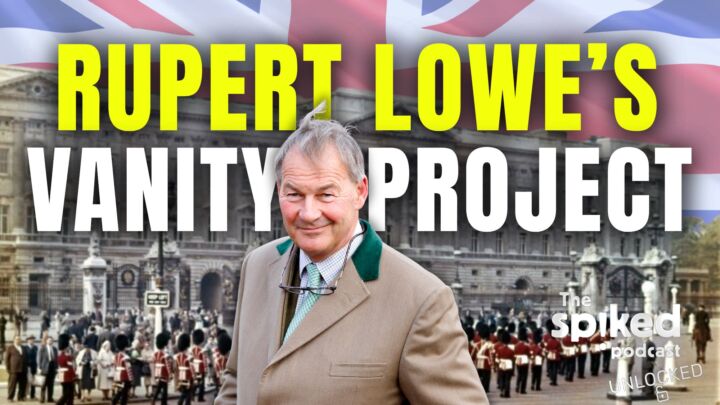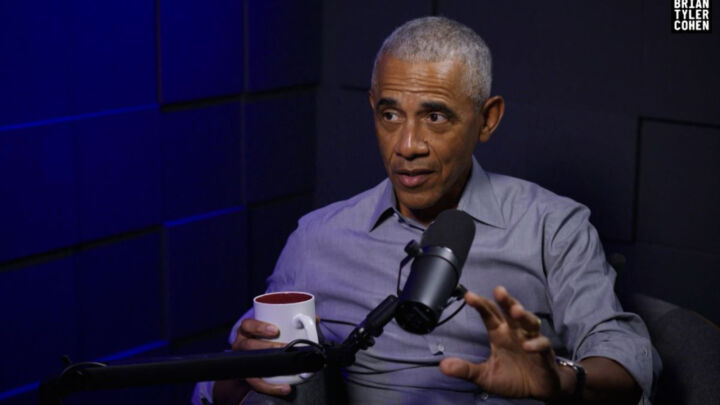The arts are being smothered by self-censorship
The ‘creative’ sector has become a hostile environment for new, challenging and controversial ideas.

Want unlimited, ad-free access? Become a spiked supporter.
At the launch of our Freedom in the Arts (FITA) initiative in May, I found myself joking about how, as an artist and choreographer, I’ve spent my career trying to figure out what I can and can’t say. We’ve always had our taboos in the theatre. You never whistle in the wings. You never wear green on stage – unless you’re playing the Wicked Witch. You never say ‘good luck’ – you say, ‘break a leg’. And, of course, you never utter the name of ‘the Scottish play’ inside a theatre.
But now the taboos have changed. You might not even realise that you’ve said the wrong thing until the email arrives, the event disappears or the invitations stop. There is a new speech code, and no one will tell you the lines.
In the arts world in the UK today, there’s an invisible list of ‘acceptable’ topics and opinions. If you say the wrong thing, or express scepticism of certain dogmas, you risk a career-ending cancellation. This is why I co-founded FITA in 2023. Together with my colleague, Denise Fahmy, an experienced arts worker, we recognised that something essential was being lost in the arts sector: the freedom to think, create and speak without fear. The rise of ideological conformity was silencing the very voices we need to expand creative boundaries.
To reveal the extent of the crisis, we needed evidence. So we commissioned the Afraid to Speak Freely report. It gives us the facts, figures and personal stories that prove just how bad things have got in the arts. Alarmingly, the suppression of free speech in the arts is not only rife, it is growing, too.
In total, 483 arts professionals across various disciplines were surveyed in the report. Their testimonies reveal how censorship, fear and professional reprisals are everywhere in today’s arts world. The findings in the report are disturbing: 84 per cent of respondents said that they never, or rarely, feel free to speak publicly about their opinions.
Arguably, the most alarming part of the report concerns the ideological orthodoxy within the arts. A staggering 78 per cent of respondents agreed that people working in the arts ‘wouldn’t dare own up to right-of-centre political opinions’. This is a striking indication of the political climate in the arts, where one viewpoint is not simply dominant – it is almost tyrannically enforced. One respondent captured this sentiment perfectly: ‘The arts world now wants everyone to have the correct political art, the correct opinion… If they find out you’ve got the wrong opinion, they don’t want to know about your art.’
The report identifies a set of ‘dangerous topics’ that artists fear to discuss publicly. These include gender-critical views, questioning critical race theory and the Israel-Palestine conflict. Unsurprisingly, gender-critical beliefs were cited by a large number of respondents as being a no-go zone. Nearly 50 per cent said that expressing views questioning transgender self-identification would have career-ending consequences.
The professional risks associated with speaking out on these issues are not just theoretical. In fact, 80 per cent of respondents said they have experienced intimidation or harassment for discussing controversial issues affecting the arts sector. Artists who voice non-conformist views face career consequences such as job loss, exclusion from projects, even blacklisting.
Perhaps the most damaging consequence of this growing climate of fear is the widespread practice of self-censorship. Artists, unsure what opinions will lead to social, professional or financial repercussions, are opting to stay silent. Many respondents spoke of weighing the risks before expressing any potentially controversial opinions, often opting for caution to avoid backlash. Artists feel pressured to conform to prevailing ideologies rather than speaking their truth or exploring new, challenging ideas. As one artist put it, ‘I keep my head down now. I can’t afford to speak out or take risks anymore.’
The testimony of a poet contained in the report reveals how damaging the climate of fear has been to the creative process. In the past, he was free to explore challenging ideas. Now he feels restricted even before putting pen to paper, as a nagging self-censorship inhibits his imagination. This is not only sad but dangerous for the future of the arts. The arts need diversity of thought.
The report also highlights several examples that show the real-world impact of the woke takeover of the arts. These case studies feature people whose careers have been derailed, or who have faced personal attacks simply for speaking their minds. One such case is that of Birdy Rose, a visual artist who was publicly targeted after expressing gender-critical views. She was labelled ‘unsafe’ and faced significant backlash from her peers.
The findings of the Afraid to Speak Freely report are a serious warning to the arts world. The sector risks losing its relevance if it continues down the path of ideological conformity and self-censorship. The arts should be a space for challenging the status quo, engaging in open debates, and pushing the boundaries of what is considered acceptable. If we allow fear to dictate what can and cannot be said, we will only stifle creativity and lose the very essence of what makes the arts such a vital part of society.
Yet there is reason for optimism. More and more artists, institutions and organisations are beginning to speak up. There is an increasing recognition of the need to protect the freedoms that make the arts what they are. FITA’s work, alongside the efforts of the Free Speech Union and others, is helping to create a growing movement that is committed to defending artistic freedom.
This is not a fight that can be won overnight, but with courage, solidarity and a commitment to the values of free expression, we can ensure that the arts remain a space where all voices – no matter how controversial – can be heard.
Rosie Kay is a choreographer and co-founder of Freedom in the Arts. You can read the Afraid to Speak Freely report here.
You’ve hit your monthly free article limit.
Support spiked and get unlimited access.
Support spiked and get unlimited access
spiked is funded by readers like you. Only 0.1% of regular readers currently support us. If just 1% did, we could grow our team and step up the fight for free speech and democracy.
Become a spiked supporter and enjoy unlimited, ad-free access, bonus content and exclusive events – while helping to keep independent journalism alive.
Monthly support makes the biggest difference. Thank you.










Comments
Want to join the conversation?
Only spiked supporters and patrons, who donate regularly to us, can comment on our articles.